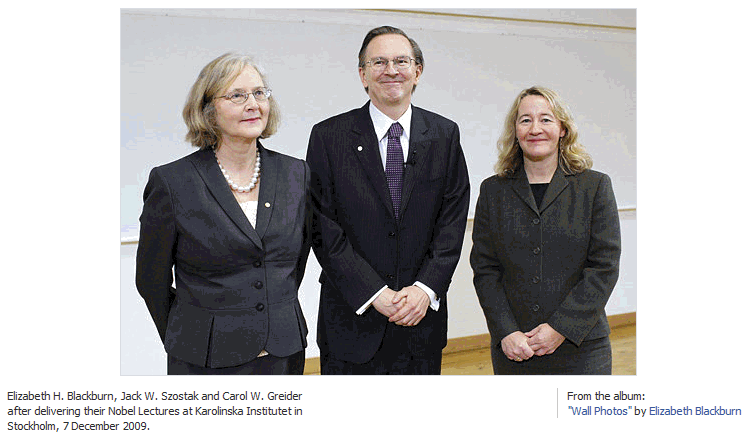|
|
|
|
|
|
|
News & Views item - February 2010 |
![]() Elizabeth
Blackburn Offers Some Sage Advice to Budding Graduate Science Students.
(February 24, 2010)
Elizabeth
Blackburn Offers Some Sage Advice to Budding Graduate Science Students.
(February 24, 2010)
"My feeling is not to get too cross-disciplinary and shallow and spread all over the place too quick," Australia's 2009 Nobel Laureate in Medicine or Physiology advised. She was being interviewed by Andrew Trounson for The Australian's Higher Education Supplement. "One needs to be able to bring something very substantive to the table because I can see the temptation would be to try to be overly generalised and shallowness would be the consequence."
Professor Blackburn in the 1990s joined a cross-disciplinary research initiative in the US on breast cancer. She believes that the key to the group's ability to become quickly productive was that all the scientists had a deep knowledge of their fields and this created confidence and mutual respect, she says. And she says face-to-face talks worked best as presentations by different members generated questioning by the whole group.
We had to explain stuff to each other, and sometimes I would think it incredibly elementary what they didn't know and I'm sure they thought it was incredibly elementary what I didn't know. Mutual respect is essential because there is profound ignorance on both sides. It was a good lesson to me that this can work and I liked the way it worked.
Professor Blackburn emphasised that basic scientific rigour and training are vital to the success of any cross-disciplinary research as scientists are taken outside their core specialisation: "It all depends on the quality of the thinking and that is where the training is much more important and the subject matter less important. Teaching people the best scientific thinking is much more important than making sure they have all the facts about something because, frankly, the facts change."
